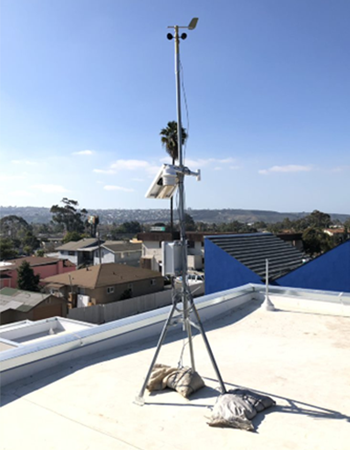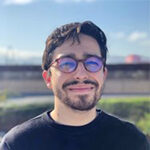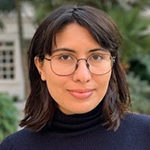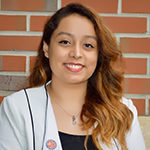The Challenge
San Ysidro is a majority (93%) Latino community and contains some of the lowest income census tracts in the City of San Diego (SD). Of the 30,000 residents, 70% are Hispanic and 54% have less than a high school education. The median household income is 56% less than that of the City of San Diego and 24% less than the average for California as a whole. San Ysidro is framed by three active freeways: Interstate 5, Interstate 805, and State Route 905.
Proximity to the U.S.-Mexico Port of Entry (POE) has raised concerns about air quality due to extreme vehicular wait times and industrial truck exhaust. As many as 120,000 vehicles and 60,000 pedestrians cross the POE each day.
The Results
Together with project partners & collaborators, we will be able to create an environmentally just, equal, and innovative design for the residents of San Ysidro. This will be done through calculation of climate metrics and GHG emission reductions and assessment of environmental, ecological, and public health benefits of proposed design.
Our case study can serve as a tool for Disadvantaged Communities (DAC) throughout California by addressing tangential issues that affect their residents as well. These include transportation justice, green pedestrian corridors, public safety, and serve as a launching pad for future green infrastructure.
Project Overview
San Ysidro is a majority (93%) Latino community and contains some of the lowest income census tracts in the City of San Diego (SD). Of the 30,000 residents, 70% are Hispanic and 54% have less than a high school education. The median household income is 56% less than that of the City of San Diego and 24% less than the average for California as a whole. San Ysidro is framed by three active freeways: Interstate 5, Interstate 805, and State Route 905. Proximity to the U.S.-Mexico Port of Entry (POE) has raised concerns about air quality due to extreme vehicular wait times and industrial truck exhaust. As many as 120,000 vehicles and 60,000 pedestrians cross the POE each day. While many SD County communities have seen a reduction in air pollutants during the COVID-19 pandemic, San Ysidro has recorded an increase in pollutant levels such as black carbon (BC).
Casa Familiar is the leading non-profit organization in San Ysidro and has a 40+ year history of advocacy, service provision, community planning, and development. Alongside San Diego State University, the San Diego Air Pollution Control District and the University of Washington, Casa Familiar was part of the San Ysidro Community-Based Air Monitoring Study. The goal of this study was to engage the community of San Ysidro in designing, deploying, and analyzing the data collected from a network of low-cost air quality monitors for 12 months. This study found significant links between border wait times at the POE and air pollutant levels at nearby sites.

PROJECT SPONSOR

Project Team




About Us
The Community Science Exchange is a platform led by a coalition of partner societies, launched for elevating, sharing, and expanding the reach of science performed by, for, and with communities.
Contact
communitysci@agu.org
